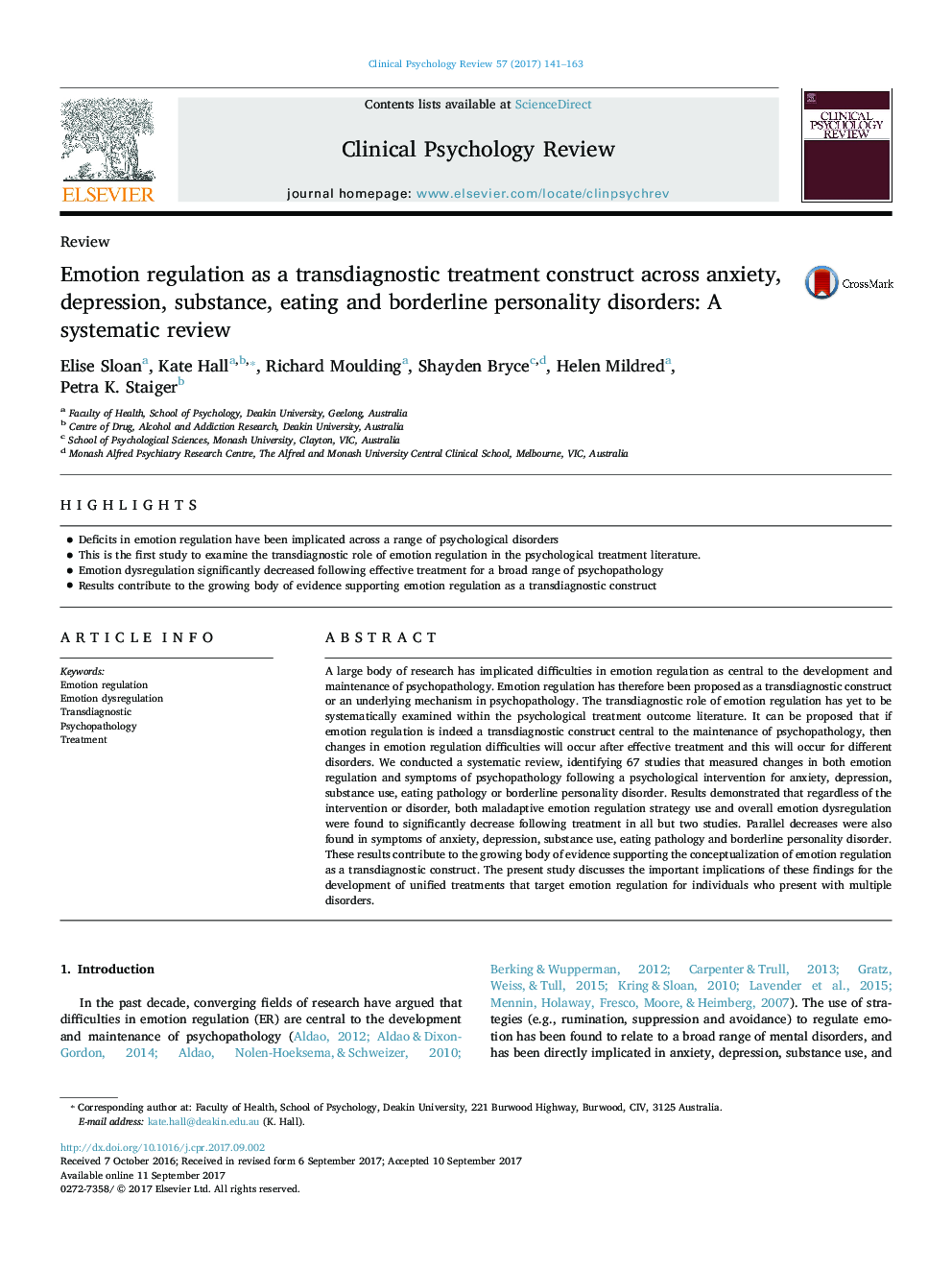| Article ID | Journal | Published Year | Pages | File Type |
|---|---|---|---|---|
| 5038448 | Clinical Psychology Review | 2017 | 23 Pages |
â¢Deficits in emotion regulation have been implicated across a range of psychological disordersâ¢This is the first study to examine the transdiagnostic role of emotion regulation in the psychological treatment literature.â¢Emotion dysregulation significantly decreased following effective treatment for a broad range of psychopathologyâ¢Results contribute to the growing body of evidence supporting emotion regulation as a transdiagnostic construct
A large body of research has implicated difficulties in emotion regulation as central to the development and maintenance of psychopathology. Emotion regulation has therefore been proposed as a transdiagnostic construct or an underlying mechanism in psychopathology. The transdiagnostic role of emotion regulation has yet to be systematically examined within the psychological treatment outcome literature. It can be proposed that if emotion regulation is indeed a transdiagnostic construct central to the maintenance of psychopathology, then changes in emotion regulation difficulties will occur after effective treatment and this will occur for different disorders. We conducted a systematic review, identifying 67 studies that measured changes in both emotion regulation and symptoms of psychopathology following a psychological intervention for anxiety, depression, substance use, eating pathology or borderline personality disorder. Results demonstrated that regardless of the intervention or disorder, both maladaptive emotion regulation strategy use and overall emotion dysregulation were found to significantly decrease following treatment in all but two studies. Parallel decreases were also found in symptoms of anxiety, depression, substance use, eating pathology and borderline personality disorder. These results contribute to the growing body of evidence supporting the conceptualization of emotion regulation as a transdiagnostic construct. The present study discusses the important implications of these findings for the development of unified treatments that target emotion regulation for individuals who present with multiple disorders.
